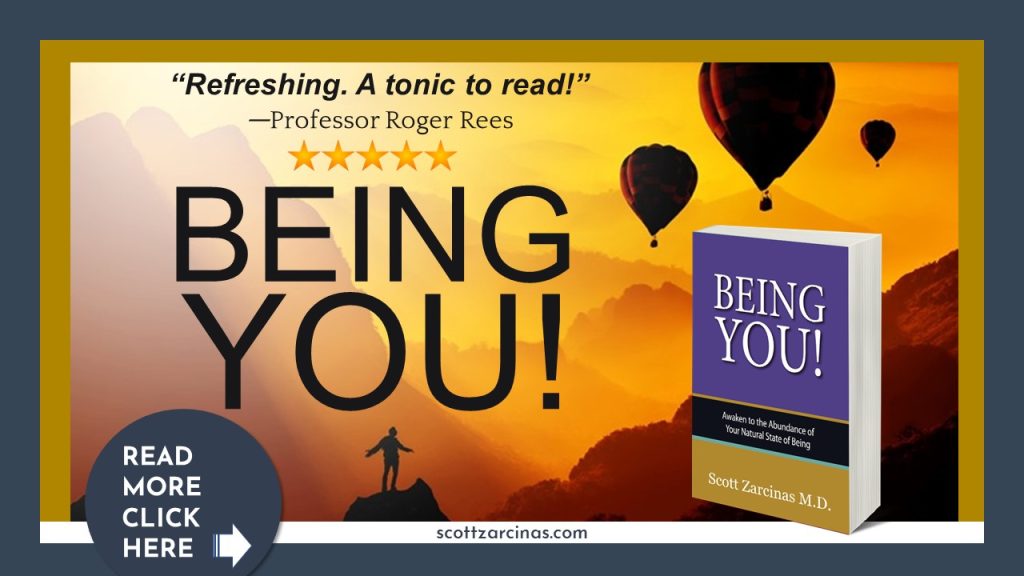
The Power of Self-Awareness: Understanding Yourself, Your Values, and Your Goals
By Dr. Scott Zarcinas | Author, Doctor, Spiritual Coach
Know Thy Self
As humans, we have an innate desire to understand ourselves and our place in the world.
Self-awareness is a key component of this understanding, and it can help us better understand our values, goals, motivations, and life purpose.
At the basic level, self-awareness is the ability to recognise your own thoughts, feelings, and behaviours and how they impact your life. It involves an understanding of your strengths, weaknesses, and motivations, and it can help you identify areas for growth and improvement.
Research has shown that self-awareness is a critical factor in personal and professional success, as it can lead to better decision-making, improved communication, and greater self-confidence.

Types of Self-Awareness
Organisational psychologist and executive coach, Tasha Eurich, identified in her research two identifiable types of self-awareness:
-
- Internal Self-Awareness
- External Self-Awareness
Internal self-awareness is the ability to see how our own values, passions, and aspirations fit with our environment and reactions (thoughts, feelings, behaviours), and how they impact on others.
Eurich found that internal self-awareness is associated with higher job and relationship satisfaction, personal and social control, and happiness.
She also found that those with high internal self-awareness had less anxiety, stress, and depression.
External self-awareness, in contrast, is the ability to understand how other people view us in regard to our values, passions, and aspirations.
For instance, those who are able to comprehend how others see them are more able to empathise and take another’s perspective. For example, for those leaders who see themselves as their employees do, their employees tend to have a better relationship with them, feel more satisfied with them, and see them as more effective.
Self-awareness, both internal and external, is therefore an important skill that can help you make better decisions, improve your relationships, and achieve your goals.
But for me, the importance of self-awareness is the awareness beyond your mental, physical, and emotional sense of self— the awareness of your true self. Your spiritual self, your soul identity:
The real power of self-awareness is that it can help you achieve greater success and happiness in your personal and professional life through the recognition of who you really are, a spiritual being having a human experience.

Self-Awareness Benefits
At the everyday level of who we are and what we do (i.e. Your 7 Life Segments), one of the key benefits of self-awareness is that it can help you better understand your values, purpose, and goals in each of your roles (e.g. family, relationships, career, sport etc.).
When you have a clear understanding of what is important to you, you can make decisions that align with your values and work towards achieving your goals with purpose and meaning.
Self-awareness can also help you identify areas where you may need to make changes in order to live a more fulfilling life.
Furthermore, when you understand your own emotions and behaviours, you’re better able to empathise with others and communicate effectively. This can lead to stronger, more fulfilling relationships with the people in your life, at work and at home.
Self-awareness, therefore, is not only important for personal growth but also for building strong relationships. When you understand your own thoughts and feelings, you are better equipped to communicate them to others. This can lead to deeper connections and help you navigate conflicts and disagreements in a more productive and respectful way.
Self-awareness is the first step in growing into the person you want to be and mastering the art of living.
When you have a deep understanding of the internal self and the public (external) self through self-awareness, your relationship with yourself and others improves, even your physical and mental health gets better.
But the most important effect of better self-awareness is the improved relationship you have with your real self, your soul identity.
That’s when real freedom can be achieved.

Spiritual Practices for Self-Awareness
There are undoubtedly transformative effects of self-awareness on our general wellbeing and important relationships, but the most important effect of self-awareness is the self-realisation as a spiritual being.
Self-awareness is how you remove the mask of the false, ego self, and reveal the true self underneath.
We are not our thoughts. We are not our emotions. We are not our body. We are soul.
So how can we incorporate self-awareness into our daily lives so that we can experience more of our spiritual selves?
Here are some practical tips to cultivate spiritual self-awareness:
- Journaling
- Practice mindfulness
- Seek feedback
- Self-reflection

1: Journaling
Journaling is a great tool for developing self-awareness.
Writing down your thoughts and feelings can help you better understand your own patterns and behaviours and gain insight into your inner world.
It can also help you work through difficult emotions and find clarity in confusing situations.
You might like The Winner’s Way, the journal I give my clients to help them with this exercise.
2. Mindfulness Meditation
Another way to develop spiritual self-awareness is through mindfulness meditation.
Mindfulness involves paying attention to your thoughts, feelings, and physical sensations in the present moment, without judgment or distraction.
This can help you become more aware of your own patterns and habits which might be blocking spiritual realisation.
Mindfulness is especially powerful in uncovering the blocks and barriers to aligning with your soul identity.

3. Trusted Feedback
Seeking feedback is an important aspect of self-awareness as it allows us to gain a different perspective on ourselves.
Ask trusted friends, family members, or colleagues for honest feedback about your strengths and weaknesses in all areas of your 7 Life Segments, especially areas of spirituality, religion, and ethics. This can help you identify areas for improvement and growth, not just in everyday areas but in the area that matters most, your spirituality.
Asking for feedback can be difficult as it requires vulnerability and an openness to criticism, but it can be extremely beneficial in helping us identify our strengths and weaknesses.
Trusted friends, family members, or colleagues can provide valuable insights into our behaviours, actions, and communication styles. They can point out areas where we excel and areas where we may need improvement. It’s important to seek feedback from people who we trust and respect, and who have our best interests in mind.
Receiving feedback can be challenging, especially if it’s negative or critical. It’s important to approach feedback with an open mind and a willingness to learn and grow. Remember, feedback is not a personal attack, but rather an opportunity to improve.
As Brené Brown writes in her book Daring Greatly,
“There is no innovation and creativity without failure. Period. Seeking feedback and even encouraging criticism is an essential part of the process.”

4. Self-Reflection
Finally, self-awareness also involves understanding the values, purpose, and goals that align with your soul identity. When you know what’s important to your spiritual growth, it’s easier to make decisions that align with your soul’s priorities.
The first step is to take an honest look at yourself and self-reflect. This means being willing to acknowledge your strengths and weaknesses, as well as your emotions, behaviours, and most importantly your self-beliefs.
Take time to reflect on your own actions and decisions. Ask yourself what worked well (e.g. what aligned) and what could be improved (e.g. how to better align). This can help you identify areas for growth and improvement in all areas of your life, most of all your spiritual life.
Without doubt, self-reflection is the critical ingredient for spiritual growth. Without self-reflection you will remain where you are, unable to progress, wondering why you feel like a ship moored at the dock and unable to set sail. With it, you can release your moorings and sail across the horizon.
“The journey into self-love and self-acceptance must begin with self-examination… until you take the journey of self-reflection, it is almost impossible to grow or learn in life.” ~ Iyanla Vanzant
So take some time to reflect on what matters most to you in life. Write down your values, purpose, and goals, and think about how you can align them with your soul identity.

SUMMARY
Self-awareness is a powerful tool that can help you better understand yourself, your values, your goals, but most importantly your soul identity.
By developing this essential skill, you can make better decisions, improve your relationships, and live the life you were born to live.
So take some time to reflect on your thoughts, feelings, and behaviours, and how they align with your soul identity. Practice journaling, mindfulness, seeking feedback, and self-reflection.
And remember, self-awareness is a spiritual journey of awakening, not a destination to arrive at. Keep learning about yourself and growing as a soul, and you’ll be well on your way to a happy, fulfilling life.
Download Your Free Welcome Pack
Fill in the form to receive your welcome pack and start your spiritual transformation immediately.
 ABOUT DOCTORZED
ABOUT DOCTORZED
Dr. Scott Zarcinas (aka DoctorZed) is a doctor, author, and Spiritual Practitioner. He gives you the tools to take control of your spiritual journey and achieve meaningful transformation. DoctorZed gives regular workshops, seminars, presentations, and courses to support those who want to make a positive difference through spiritual alignment. He now invites you to start your spiritual journey by knowing yourself (i.e. by first knowing your awakening archetype).
Tags: Gratitude, Mindfulness, Self-Awareness




